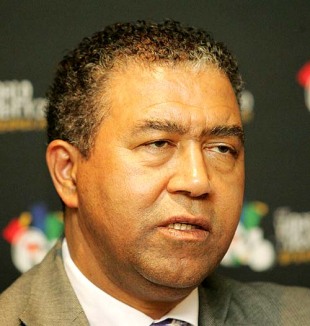An awkward step in the right direction
The abolition of the presidential 'veto' of national team selection is an enormous step in the right direction for South African cricket as it strives towards 'normalisation' yet, as important as it is, it comes shackled to a couple of backward steps, as

| ||
Neil Manthorp is a South African broadcaster and journalist, and head of the MWP Sport agency